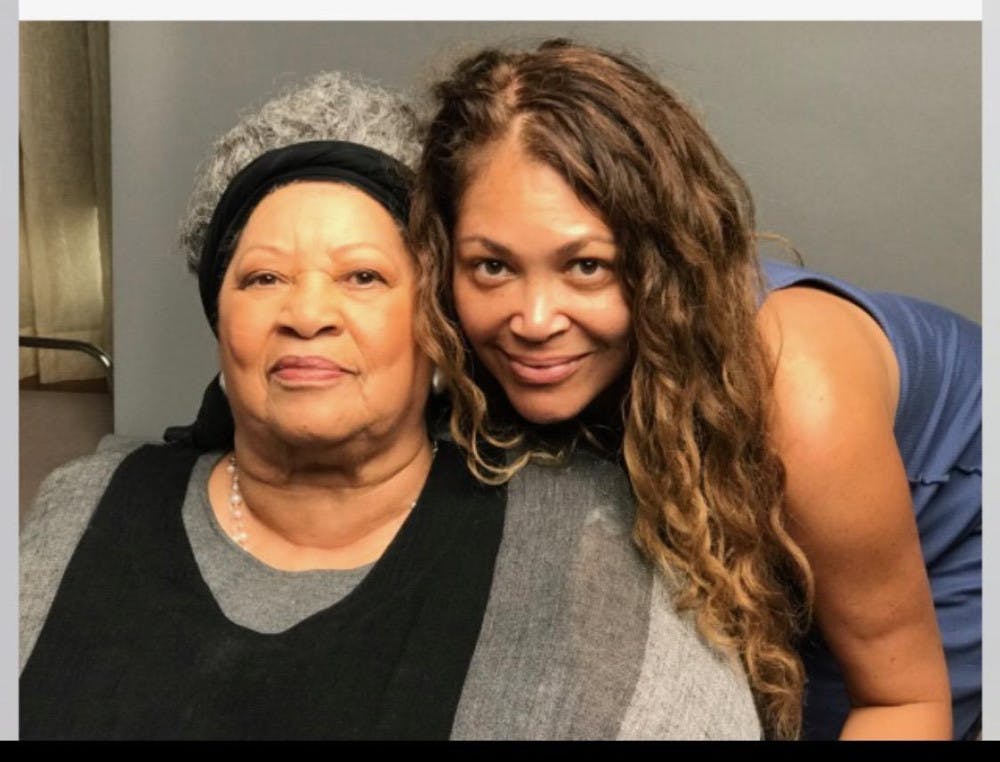Earlier this year, Sandra Guzmán, a local journalist, documentarian and author, produced a documentary on the late Nobel Laureate Toni Morrison that was shown at The Loft in downtown Portsmouth and will premiere on PBS before the year’s end. Guzmán spent two days interviewing Morrison in her home. At the time, Guzmán was working with Timothy Greenfield-Sanders, a filmmaker that knew Morrison and had been her personal photographer for years. Guzmán approached Sanders about her idea for making a documentary on Morrison.
“I was a stranger in a village, the only one of my kind. Toni Morrison’s books became my shelter,” Guzmán said in an opinion piece she wrote for NBC News following Morrison’s death.
“I said, ‘Timothy, we have to do this, you are the only person I know who [knew] her, let’s do this,’ and he ran with it and proposed it,” Guzmán said.
“I had just moved from New York City to live with my husband and youngest son on the campus of Phillips Exeter Academy,” Guzmán said. “It was a really beautiful time, this was 2013 and I was very happy, but I was also very lonely. I was the only one of my kind, if you may; I’m Puerto Rican, I’m from the Caribbean, I’m native and I’m black. There’s not a lot of people like me in New Hampshire, and certainly not in Exeter.”

Guzmán decided to read Morrison’s books in chronological order and was impressed by her talent and ability to bring stories of African American women to life. She began with Morrison’s first novel, “The Bluest Eye,” and instantly connected with the main character, Piccola, because she struggled with finding herself and her beauty. Morrison’s books gave her a sense of belonging that she needed.
“I was just in love and I didn’t feel lonely anymore,” Guzmán said.
Once completing Morrison’s works, Guzmán searched on the American Masters website for a film on the author. When she came up with nothing, she was saddened and upset and took it upon herself to make that film.
“This is a film that I wanted to see and when I realized that it had not been made, I made it my business to make it,” she said. “That’s something Toni Morrison often [said] about a book. If you want to read a book that hasn’t been written, then you must write it.”
When asked what she wanted to make sure she included in the film and what she wanted to know of Morrison, Guzmán said she wanted most of all to know her heart.
“Ultimately, someone who writes that well has a big and beautiful heart,” said Guzmán.

She was in awe of the author and admired her ability to raise two boys, have a full-time job as an editor at Random House Publishing and also write fiction that was infused with American history.
After finishing filming for the documentary, Guzmán and Morrison shared a powerful moment.
“When we wrapped the film, she pointed to what I thought was a sculpture and asked me to get it for her,” Guzmán said in her opinion piece. “Holding the piece, iron, hard, cold and heavy, she explained that it was an anklet that black women house slaves were forced to wear. She handed it to me, letting me hold it, and said, ‘It’s light enough that you can do housework, but heavy enough that you can’t run away. I have two, one in the living room and one next to me on my night table.’”
Guzmán said that Morrison asked us to never forget the millions of black men and women who were enslaved and that it was our duty to honor and remember them. She made sure that no one would forget the author that changed her life and continues to spread Morrison’s message.













